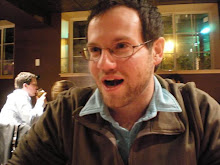One of the best-known Passover songs is חד גדיא (Chad Gadya), usually translated as “An Only Kid" (kid like baby goat). Sung towards the end of the Pesach Seder, it is a cumulative-counting song like “I knew and old woman who swallowed a fly.” The final verse of Chad Gadya goes:
“And Came the Holy One Blessed be He [G-d] and slew the Angel of Death that slaughtered the slaughterer that slaughtered the ox that drank the water that quenched the fire that burned the stick that beat the dog that bit the cat that ate the goat that father bought for Two Zuzim, one goat, one goat.”
There are a lot of interpretations of the song. Perhaps the most common understanding is that it is a nonsensical song that keeps children awake and gives them something to look forward to at the end of a really long meal.
Another interpretation (the two are not mutually exclusive) is that it is about the history of the land of Israel. Each character represents someone who has lived in/conquered the land of Israel. The goat represents the Jews, acquired with the two tablets of the Ten Comandments. The cat is Assyria, the Dog Babylon, the stick Persia, the fire Greece, the water Rome, the ox the Byzantine Empire, the slaughterer the Crusaders, the Angel of the Death the Ottoman Empire. G-d, representing himself, has the final word.
It isn’t exactly the most uplifting of interpretations. Then again, neither is human history. I think the song very accurately reflects the helplessness of being stuck in a cycle of violence.
The following is poem from one of the Hebrew language’s great poets. Yehuda Amichai was born in Germany in 1924. He escaped to British Palestine and became a member of the Palmach, a violent Jewish paramilitary organization that was important to the Jewish victory in the 1948 War of Independence. Later in life his politics shifted. He became and advocate of peace and reconciliation and worked with Arab writers on creating works along those themes.
This poem has many layers of religious, social, historical and personal meaning. It was written between 1948 and 1967. During that period, Jerusalem was a divided city (at least differently divided from today). The topography of the poem is the no-man’s-land that separated Jordan from Israel; a dangerous place that was shot at by both sides.
An Arab Shepherd is Searching for His Goat on Mount Zion
An Arab shepherd is searching for his goat on Mount Zion
and on the opposite mountain I am searching
for my little boy.
An Arab shepherd and a Jewish father
both in their temporary failure.
Our voices meet
above the Sultan’s Pool in the valley between us.
Neither of us wants
the child or the goat to get caught in the wheels
of the terrible Had Gadya machine.
Afterward we found them among the bushes
and our voices came back inside us, laughing and crying.
Searching for a goat or a son
has always been the beginning
of a new religion in these mountains.
-Yehuda Amichai; translated by Chana Block
I have a lot to say and write about this poem. But rather than bore you with my over-analysis, I'll summarize briefly. In Judaism and Christianity, Abraham the Patriarch was called upon to sacrifice his son Isaac not so very far from the action of the poem. The Islamic tradition holds that it was Abraham’s other son, Ishmael, father of the Arab people, who was nearly sacrificed on that occasion. And the Prophet Mohamed’s revelation occurred while searching for a lost goat, in a dream about that same spot.
Amichai’s poem is beautiful; it brought me to tears when I first read it. It refocuses historical and religious conflicts in the light of what is possible; the founding of a new religion (which might be better translated as “knowledge” in this case) versus the perpetuation of existing destructive patterns. I wonder how deeply in our consciousness these patterns and cycles are inscribed. It seems to me that they go back a long way, across a great many cultures. But in all three Abrahamic faiths G-d stopped Abraham from perpetuating the cycle of violence that was the sacrifice of children (a somewhat common practice in the region at the time). G-d isn’t so directly involved anymore (whether or he ever was is another discussion). So now in this day and age, and in this iteration of Amichai’s “Chad Gadya Machine,” it falls to human beings to play the part of the Angel who stays Abraham's knife wielding hand as it prepares to start the cycle over again.
Next year, whether I am in a rebuilt Jerusalem or not, I’ll read this poem after we sing “Chad Gadya.”
Friday, April 24, 2009
Subscribe to:
Post Comments (Atom)

No comments:
Post a Comment